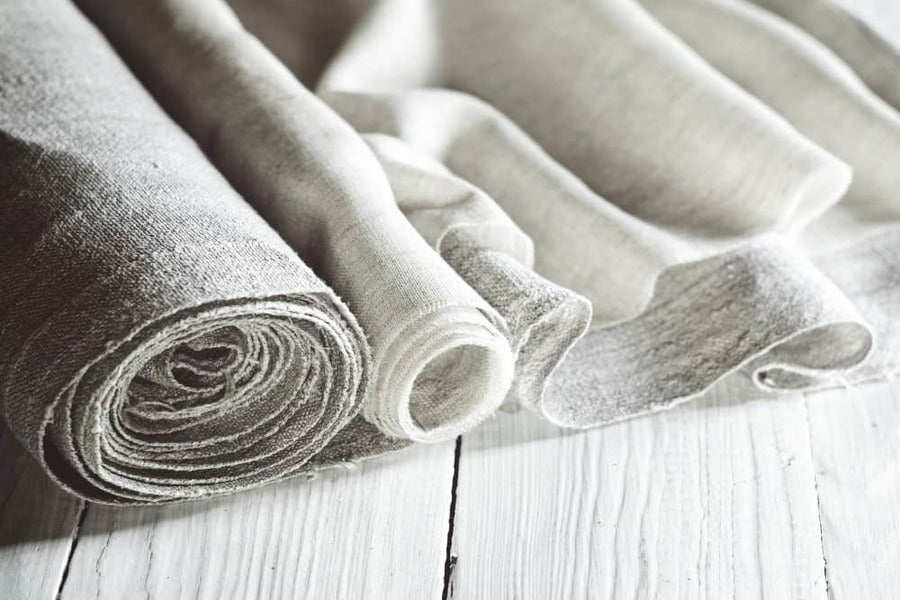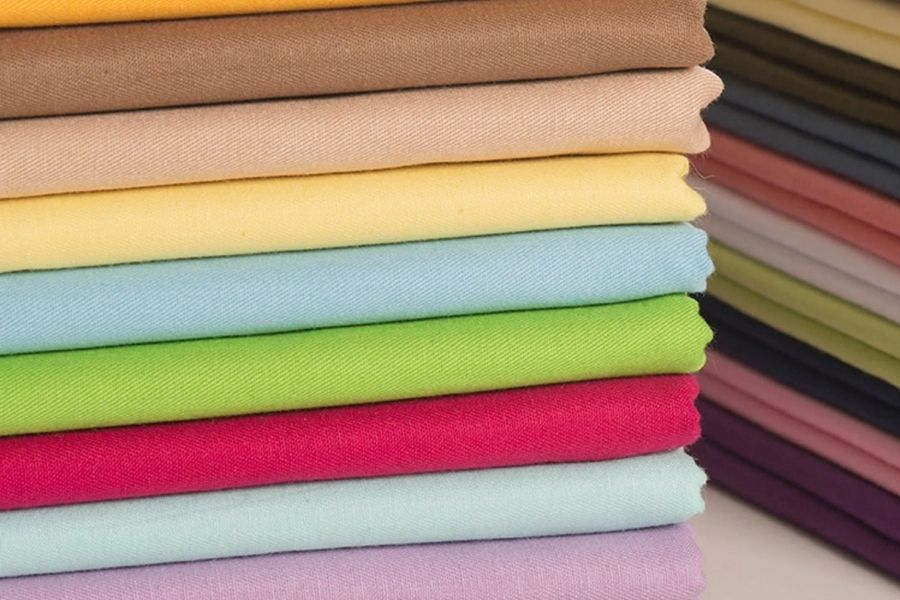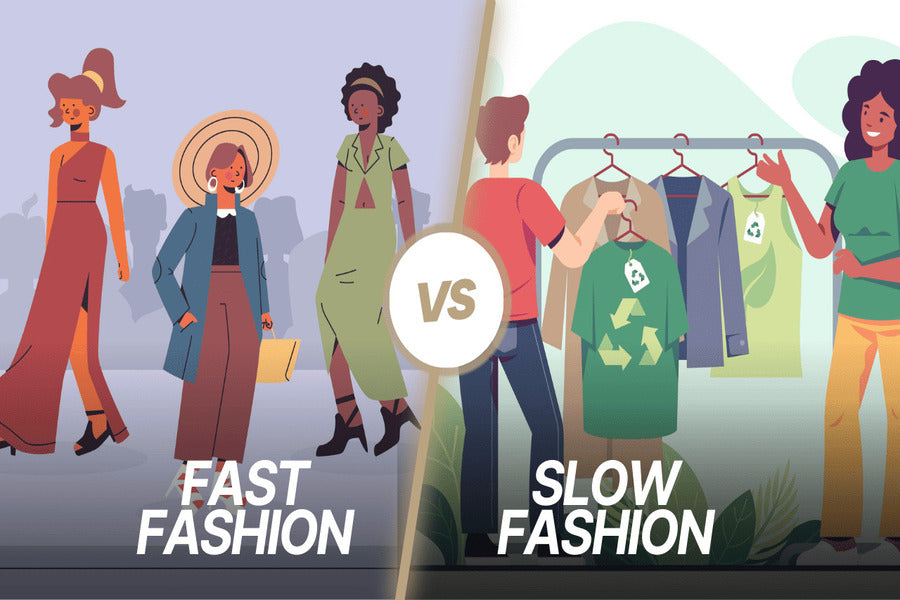
Vegan Fabrics: Why Are They Better Than Other Fabrics?
Key Takeaways
- The need for sustainable, cruelty-free materials is rising along with environmental awareness.
- Eco-friendly and ethically superior textiles are made from plant-based materials rather than animal products.
- This article explores the various types of vegan fabrics and highlights why they are a better choice for environmentally conscious individuals.
What are Vegan Fabrics?
As more people seek cruelty-free alternatives to conventional textiles made from animal products, vegan fabrics are gaining popularity. These materials are crafted from eco-friendly and biodegradable plant-based fibers such as hemp, cotton, and bamboo, providing a guilt-free choice for those concerned about their ethical and environmental impact.
In addition to natural fibers, vegan fabrics can also be composed of entirely synthetic and semi-synthetic materials, including polyurethane and lyocell. These options offer a variety of benefits, from affordability to durability, all while eliminating the need for animal labor in the textile industry.

Vegan fabric is made from plant-based materials
Primary Benefits of Vegan Fabrics:
- Cruelty-free: Vegan fabrics are made without harming animals, ensuring ethical production practices. They offer a compassionate alternative to traditional materials.
- Environmentally Sustainable: These materials reduce the carbon footprint by relying on renewable resources and generating less waste, helping to combat pollution and climate change.
- Ideal for Plant-Based Garment Materials: Vegan fabrics, derived from plants like hemp and bamboo, are breathable, durable, and versatile, making them perfect for a wide range of clothing styles
Vegan Fabric Types
Vegan fabrics are categorized into three types: natural, semi-synthetic, and synthetic. Let’s explore the various vegan materials within each category.
1. Natural Vegan Fabrics
For consumers who prioritize environmental responsibility, natural vegan materials offer a sustainable and biodegradable option derived from plants. Harvested and produced without harming animals, these materials provide a cruelty-free alternative to traditional textiles.
By offering ethical and eco-friendly design choices, these vegan fabrics help reduce environmental impact and promote long-term sustainability in the fashion industry, in addition to serving as compassionate substitutes.
Cotton
One of the most commonly used vegan materials is cotton, celebrated for its hypoallergenic properties, durability, and breathability. As a naturally occurring, renewable resource derived from cotton plants, it is ideal for eco-friendly apparel. Cotton is favored in vegan fashion for providing an environmentally responsible and cruelty-free alternative to animal-derived materials.
Available in a wide range of colors and textures, cotton is versatile enough for everything from casual wear to haute couture. Its hypoallergenic qualities and lightweight nature make it an excellent choice for those with sensitive skin. Additionally, cotton's resilience contributes to longer-lasting clothing, reducing waste and promoting a more sustainable fashion cycle.

Cotton textiles are available in a wide range of hues.
Hemp
Hemp is a strong, durable fabric made from sustainable plants. It requires minimal water, grows quickly without the need for pesticides, and produces a robust textile. Due to its eco-friendliness and sustainability, hemp is rapidly gaining popularity in vegan fashion.
Hemp clothing is known for its durability, often lasting significantly longer than cotton garments. This longevity translates to fewer replacements needed and a reduced environmental impact. Additionally, hemp is biodegradable, meaning it will naturally decompose and return to the earth without causing harm.
Linen
Linen is derived from the flax plant, celebrated for its lightweight and breathable qualities. It provides comfort in warm weather, making it an ideal choice for summer attire. As one of the most sustainable options available, linen is fully biodegradable and requires fewer resources to produce than cotton.
Thanks to its natural cooling properties, linen is an excellent fabric for hot climates. It is also known for its strength and resilience, frequently outlasting many other textiles. Linen's low water consumption and other environmental benefits make it an appealing choice for consumers seeking plant-based, sustainable materials.

Cork
Cork is an unusual vegan material made from the bark of oak trees. It is a renewable resource, harvested in an environmentally friendly manner that does not harm the tree. Due to its durability and eco-friendliness, cork is increasingly being used in fashion for accessories like belts, bags, and shoes.
This material provides a creative and sustainable vegan alternative to leather while remaining stylish. Cork is lightweight, strong, and waterproof, making it suitable for a variety of fashion products. Its sustainable harvesting methods ensure that it will continue to be a popular choice for environmentally conscious consumers.
2. Semi-Synthetic Vegan Fabrics
Semi-synthetic vegan fabrics are created from natural materials that have undergone chemical processing, striking the perfect balance between sustainability and durability. These materials offer a fresh take on fashion, blending utility with environmental responsibility.
They represent the next phase in the shift towards a more ethical and sustainable future. By choosing these materials, consumers contribute to a vision where human innovation harmonizes with Earth's resources, bringing us closer to a world where sustainability and practicality are seamlessly integrated into daily life.
Piñatex
Piñatex is an innovative vegan fabric made from fibers derived from pineapple leaves. Completely cruelty-free and environmentally sustainable, it offers the same texture and appearance as leather. This cutting-edge material is rapidly gaining popularity in vegan fashion as a moral alternative to traditional leather.
Sustainable and versatile, Piñatex can be used for a variety of fashion items, including bags, shoes, and accessories. By utilizing agricultural byproducts, it helps reduce waste and promotes a cycle of sustainable fashion. More consumers are turning to this material as a cruelty-free alternative to leather.

Pandan leaves are being dried
Cupro
Cupro is a semi-synthetic fabric made from recycled cotton linter, offering vegan apparel a breathable and biodegradable option. This smooth material is renowned for its environmentally friendly properties and is frequently used in high-end fashion.
Because cupro is biodegradable, it naturally recycles back into the environment after use, helping to prevent pollution. Additionally, it is versatile and can be styled with everything from formal to casual attire. Cupro provides both elegance and sustainability for consumers seeking plant-based fabric options.

Lyocell
Plant-based lyocell is a fabric made from wood pulp, typically sourced from bamboo or eucalyptus trees. Its soft texture and environmentally friendly production process make it a popular choice in vegan fashion. Lyocell is breathable, hypoallergenic, and biodegradable, making it ideal for a wide range of garments.
Modal
Similar to lyocell, modal is produced from beech wood pulp and boasts a silky smooth feel. It is durable, biodegradable, and serves as an excellent alternative to wool, making it a favored choice for sustainable clothing.
Bamboo
Bamboo is one of the most environmentally friendly materials for vegan clothing due to its rapid growth and minimal resource requirements. It is a soft, breathable, and highly durable fabric, making it suitable for both everyday wear and athletic use. Bamboo's sustainability stems from its ability to thrive without excessive water or pesticides.
Additionally, bamboo fabric is biodegradable, aligning with the ethical goals of reducing environmental impact. Its cruelty-free nature makes it an attractive alternative to wool and other animal-derived materials, appealing to the vegan fashion sector. Bamboo is particularly favored for activewear and undergarments due to its moisture-wicking properties that help keep the skin dry.

Vegan Leather
Vegan leather serves as an ethical alternative to traditional leather, made from either polyurethane or plant-based textiles. It offers the same aesthetic appeal without endangering animals. Beyond its cruelty-free nature, vegan leather is often more environmentally friendly, as it requires fewer resources during production.
Available in a wide array of colors and textures, vegan leather provides fashionable options for conscious consumers. As demand for eco-friendly products continues to rise, vegan leather is becoming an increasingly popular choice for those seeking both style and ethical responsibility.

3.Synthetic Vegan Fabrics

Synthetic vegan fabrics
Polyester
One of the most popular synthetic vegan materials, polyester is known for its strength and versatility. It is made from petroleum-based ingredients, which are non-biodegradable, raising concerns about its long-term environmental impact. Despite this, polyester's affordability and durability make it a favored choice in the fashion industry.
Polyester is a wardrobe staple due to its resistance to abrasion, particularly in items that endure heavy wear or require frequent washing. However, as consumers become increasingly environmentally conscious, there is a growing demand for recycled polyester options, which help reduce waste and decrease reliance on virgin petroleum.

Polyester that is waterproof
Nylon
Nylon is another synthetic material that is widely used and appreciated for its strength and flexibility. Like polyester, its non-biodegradable nature raises concerns about its environmental impact. Nevertheless, nylon's durability makes it a popular choice in vegan fashion.
Due to its water-resistant properties, nylon is commonly used in sportswear, swimwear, and outerwear. As consumers seek cruelty-free options, recycled nylon is emerging as a more sustainable alternative despite its environmental drawbacks.
Rayon
Rayon, while derived from natural sources, loses some of its environmental appeal due to the chemical processing it undergoes. This semi-synthetic fabric is created from wood pulp. Despite its environmental concerns, rayon remains a favored material among fashion designers due to its affordability and versatility.
Often used in skirts, blouses, and other delicate garments, rayon's smooth texture makes it an excellent vegan substitute for fabrics like silk. Although it may not be as eco-friendly as other plant-based textiles, its accessibility and cost-effectiveness contribute to its popularity in vegan fashion.
FAQs

Vegan materials are a sustainable and environmentally friendly choice
How eco-friendly are vegan textiles?
Depending on the materials and production methods, vegan textiles can have significantly different environmental profiles. Natural fibers like hemp, linen, and cork are among the most sustainable options because they decompose naturally and require fewer resources to grow. These materials align with eco-conscious living due to their low environmental impact.
Semi-synthetic materials like lyocell and modal offer a more balanced approach. Although they originate from natural sources, their production process involves some chemical processing. Nevertheless, these textiles are comparatively eco-friendly, making them a viable choice for sustainable fashion.
nonetheless, as they are frequently produced with sustainable practices and renewable resources.
Why Choose Vegan and Cruelty-Free Fabric?
Purchasing vegan and cruelty-free clothing promotes a compassionate and environmentally conscious lifestyle. Vegan materials ensure that no animals are harmed in the production process, as they are made without animal byproducts. Eco-friendly options like hemp, bamboo, and organic cotton exemplify the benefits of cruelty-free materials.
In comparison to conventional fabrics like wool and leather, these plant-based apparel options are more sustainable because they are biodegradable and renewable. By choosing vegan materials, you support fashion innovation that prioritizes sustainability and ethics.
For those who appreciate a sustainable lifestyle without compromising on style or quality, eco-friendly clothing made from synthetic or plant-based materials is a responsible choice.



